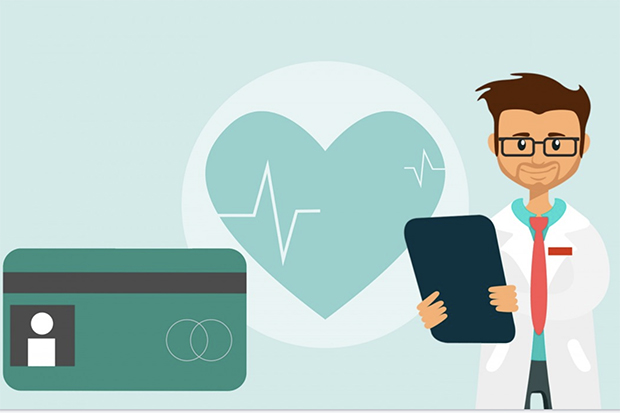Learning to navigate the American healthcare system…In 10 weeks
 Photo/Public Domain
Photo/Public DomainThe U.S. healthcare system is a major focus of national and state politics, and many of the issues involved have become flashpoints on the right and the left. But there’s more complexity and nuance than can be addressed in tweets and soundbites — and that’s where an innovative, interdisciplinary Brandeis summer program comes in.
Sarah Curi and Alice Noble — professors in the Legal Studies and Health: Science, Society, and Policy (HSSP) programs at Brandeis — launched “Health, Law, and Justice” for students to learn about the U.S. healthcare system and meet activists, lawmakers, and industry professionals.
“Health, Law, and Justice” is part of the Justice Brandeis Semester (JBS), an annual, 10-week intensive academic program during June, July and August that combines classes, site visits experiential learning for course credit.
“Certainly our students come away with having a better understanding for how complex the healthcare system is, and with that comes a very practical realization of the jobs that students had never thought about,” Noble said. “We’ve seen students go on to careers in the healthcare field, and other fields, by taking what they learned in the JBS course and putting it into action.”
“These issues are complex, even within one side of a specific issue,” said Julia Kenneally ’22, an HSSP and linguistics double-major from Kansas City. “It’s important to get perspective and see where each side is coming from and discuss those differences, particularly now with the country so divided. You have to understand what values some people have that aren’t as important to others.”
Curi and Noble launched “Health, Law, and Justice” five years ago and have made updates to the course syllabus regularly to incorporate new laws and medical innovations. For instance, recently added topics include the opioid crisis and emerging genomic technologies.
The program also balances discussing healthcare at the state and local level with its implementation through federal laws and Supreme Court cases.
“There is some back and forth, and there has to be because healthcare in the U.S. is fragmented,” said Noble. “For example, in certain instances state law applies, in other instances federal law applies and students get a sense of federalism – it’s in our Constitution, we have dual sovereigns – and how it affects healthcare in a major way and in different ways across the country.”
Over 10 weeks, students tackle different healthcare-related topics including health disparities, healthcare costs, patient rights, delivery reform, and legislation.
“The overarching law we look at, though, is the Affordable Care Act ...We look at how it became law, what its future is, and what’s happening at the federal level,” said Noble.
With Curi, students explore patient autonomy through the lense of several ethical theories, patient rights, and the changing nature of the doctor-patient relationship including physician aid in dying, abortion, genetic enhancement, and assisted reproduction.
Curi and Noble, both healthcare attorneys, say “Health, Law, and Justice” doesn’t have an ideological bent and that course readings, site visits and field work are designed to offer students many perspectives.
Students meet healthcare activists and insurance representatives. Doctors and patients. Lawmakers and advocates. Site visits include the Massachusetts State House, the Massachusetts Association of Health Plans, and the healthcare non-profit Healthcare for All.
At the end of the course, students must create a multimedia project that discusses several existing inequities or challenges in America’s healthcare system and an actionable plan to solve them. Students also learn to produce a video of a public service announcement the help of the staff and multimedia tools in Brandeis’ Getz Media Lab.
“We’re very fortunate to be able to give students this new dimension by introducing video production into the program,” Noble said.
“What’s great also is that our program doesn’t just attract students interested in health – we cover the spectrum of majors and minors, and the skills you learn through the JBS are transferable to other areas.”
Toward the end of JBS, Noble and Curi take time out of a class and ask the students to teach them about what they learned during the course. Each year, students have a greater appreciation and understanding for the complexities in America’s healthcare system and clinical bioethics.
“Sometimes I have this scene playing out in my head where the students are with their friends, who are debating healthcare issues, and then our students jump in and say ‘OK, here’s what’s really going on’ and proceed to tell their friends about how the system really works,” Curi said. “Or that they watch a presidential debate on television and call out politicians for oversimplifying or being misleading.”
“It’s amazing to see how much students learn in 10 weeks,” Curi added. “This is complex work, and by the end our students acquire an incredible command of the issues. I often wish we could take some of their work and hand-deliver it to Congress and just say ‘We’ve got something for you.’”
Categories: General, Humanities and Social Sciences, Research, Science and Technology, Student Life





